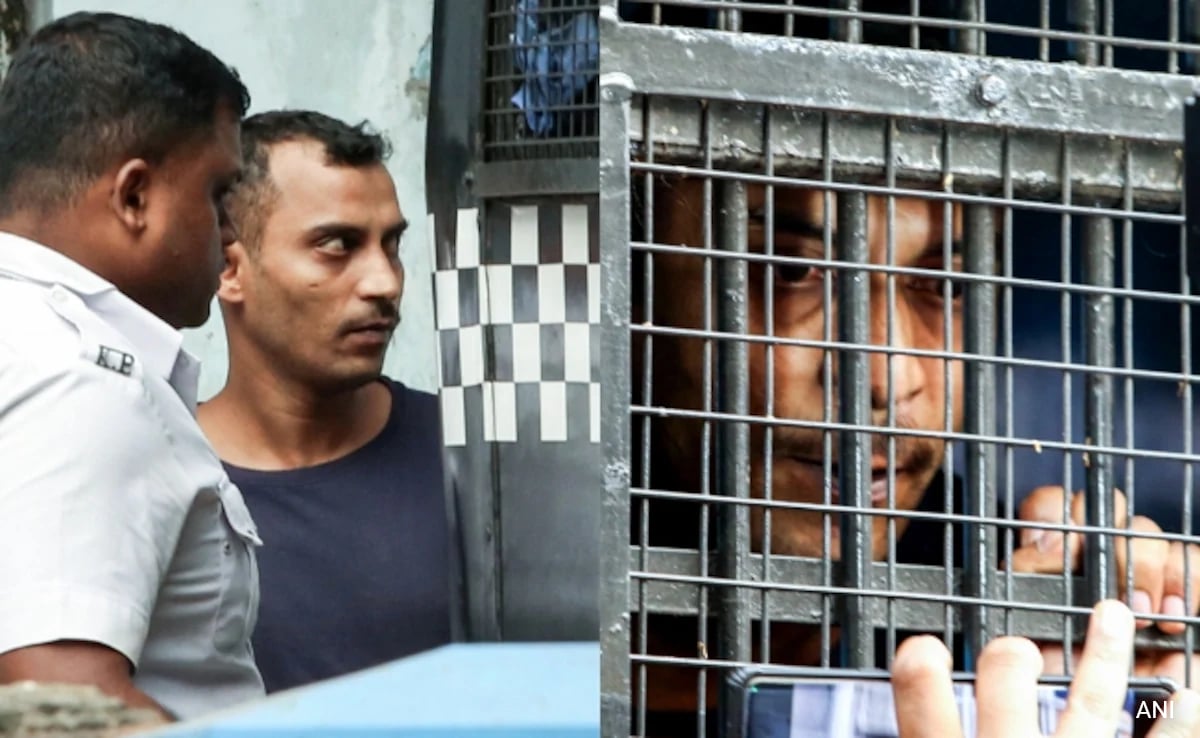Kolkata Reiterates Stance on Justice: Death Penalty Demanded for Convict Sanjay Roy
In a robust legal and ethical stand, the Mamata Banerjee-led government of West Bengal has taken a decisive move in the RG Kar rape-murder case, appealing to the Calcutta High Court for the imposition of the death penalty on convict Sanjay Roy. This case, which has captured the attention and outrage of the public, revolves around an incident involving the brutal rape and murder of a young doctor, leading to extensive public discourse on the adequacy of the judicial system in handling such heinous crimes.
On Saturday, Roy, a former civic volunteer with the city police, was sentenced to life imprisonment by a Sessions Court. The judge in the case ruled that it did not fall under the “rarest of rare” category that would justify a death sentence. However, the Advocate General of West Bengal, Kishore Dutta, swiftly filed an appeal in the high court, contending that a crime of this magnitude must be met with the harshest penalties available under the law, including capital punishment.
Understanding the Context: A Timeline of Events
The RG Kar case has seen significant turbulence since the initial incident on August 9 of the previous year, when the body of a trainee doctor was discovered under suspicious circumstances. The case drew significant media attention and public outrage, especially after allegations emerged regarding the mishandling of the investigation by the Kolkata Police. This led to intervention from the Central Bureau of Investigation (CBI), which was tasked with taking over the case amidst protests from the medical community demanding justice.
Sanjay Roy was convicted under sections of the Bharatiya Nyay Sanhita, which governs crimes of rape and murder. Despite the overwhelming evidence presented during the trial, including testimonies and forensic reports, Roy maintained his innocence, claiming he had been framed. This defense strategy was dismissed by the trial court, which ultimately led to his life sentence.
In her comments following the trial court’s decision, Chief Minister Mamata Banerjee expressed her disappointment with the ruling. She emphasized the need for the state to protect its citizens rather than criminals, stating, “When someone is a demon, can the society be human? Sometimes they get out after a few years. If someone commits a crime, should we forgive them?” Banerjee’s statement underscores the rising public sentiment reflecting a demand for stricter punishment for violent crimes, especially against women.
Judicial Perspectives on Justice and Sentencing
This case has sparked a broader conversation about the concept of justice in India, particularly surrounding the death penalty. In his 172-page ruling, Judge Anirban Das acknowledged the brutality of the crime but argued against the death penalty by invoking the principles of reformative justice and the sanctity of human life. He cautioned against yielding to public pressures and emotional appeals, stating, “Our duty is not to match brutality with brutality, but to elevate humanity through wisdom, compassion, and a deeper understanding of justice.”
The judge’s reluctance to impose the death penalty has caused a rift between public sentiment exemplified by Banerjee, and the judiciary’s attempt to uphold a more nuanced view of justice. While many view capital punishment as an appropriate retribution for extreme crimes, others argue it can compromise the very principles of justice that the judicial system seeks to uphold.
Moreover, the state government has faced scrutiny regarding its handling of the case and its overall commitment to victim support. The Bengal Assembly previously passed the Aparajita Bill aimed at enhancing women’s safety, which is currently pending approval at the central level, further fueling public concerns about government efficacy in addressing women’s rights and safety.
The Aftermath and Next Steps
The next step in this unfolding legal drama will be the high court’s deliberation on the appeal filed by the West Bengal government. As the proceedings move forward, it remains to be seen how the judiciary will balance public sentiment, the principles of justice, and the legal frameworks in place. Banerjee has pledged to continue advocating for the death penalty, reinforcing her government’s stance that extreme crimes necessitate equally extreme punishments.
In the wake of the trial’s outcome, the grieving parents of the victim have also expressed their dissatisfaction with the financial compensation awarded by the court, which amounted to Rs 17 lakh. They have firmly stated that they seek justice rather than monetary compensation, emphasizing the need for societal change and accountability rather than merely financial redress.
As debates continue surrounding capital punishment versus reformative justice, this case may serve as a pivotal moment in the ongoing discourse on crime and punishment in India, particularly as it pertains to crimes against women.
for a broader analysis on the death penalty debate, refer to credible sources such as[The Hindu](https://www.thehindu.com) and[The Times of India](https://timesofindia.indiatimes.com).
Given the emotional and societal weight of the RG Kar case, it remains a significant chapter in the narrative of justice within India, highlighting the complex intersections of law, morality, and public sentiment. The outcome of the appeal in the Calcutta High Court will undoubtedly shape future discussions on legal protections for victims and the responsibilities of the state in delivering justice.


